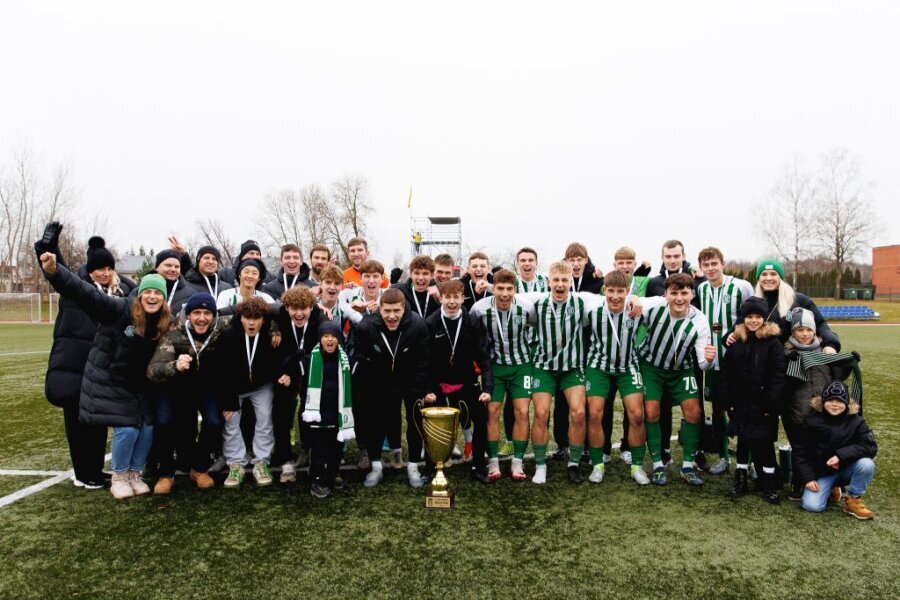 © lff.lt
© lff.lt
The reclaimed title of Lithuanian youth champions, a historical result in Europe, an unforgettable encounter with Manchester United, and the achievement of goals in the adult II league: the past year has been eventful, dramatic, and full of memorable moments for the senior boys of the "Žalgiris" academy, all culminating in a happy ending – like a Hollywood movie.
In the "Žalgiris" academy, which welcomes children from the age of five, the main emphasis is placed on the individual development of players, aiming to reveal the maximum potential of each personality.
The seniors have specific goals concerning team results as they begin the integration from youth to adult football. The "Samsung Galaxy Watch" Elite Youth League U-18 division competitions, which take place from autumn to spring, are a sort of pinnacle of Lithuanian youth football. The winners of this championship advance to the UEFA Youth League, where the strongest U-19 teams in Europe compete. The best young players also represent the B team, which competes in the men’s II league from spring to autumn.
In these three tournaments, the Vilnius team achieved their main goals in 2024 – to become U-18 division champions, progress to the second stage of the UEFA Youth League, and win a spot in the First League by winning the II league. Throughout all three competitions, the "Žalgiris" youth faced numerous decisive matches and often had to come from behind against their opponents or navigate through challenging moments.
The head coach of the senior boys, Dainius Greviškis, shared insights about the dramatic years, which included an exceptional youth clash with Manchester United.
– Many have seen or at least heard about the young "Žalgiris" players’ matches in Europe, but probably not everyone knows the journey needed to reach this goal. What was that journey like?
– Here, we should go back to the very beginning – a year ago, to the start of the U-18 championship in August 2023. Many teams were made up of 17-year-old players born in 2006. Our team consisted of 16-year-olds (born in 2007) and several promising 15-year-olds (born in 2008).
The season started without any bad omens, but at the end of September, tragedy struck – Edvinas Pukinskas passed away. This was a massive human loss, a life-changing event. He was also one of the team leaders, a promising full-back, called up to the Lithuanian national team.
I sincerely thought that for this season, it was over; after such a loss and blow, we wouldn’t recover. It was tough until the winter break; I felt that the team was suffering. I said that we have Edvinas in our hearts, but we must not give up, we must not let our opponents too far ahead. That we would work hard during the winter and move on. Throughout the winter, we trained a lot, prepared, and in the second half of the season, we won almost all of our matches, except for one.
In the last round, to maintain first place, we needed a victory in Kaunas against "BE1 NFA". After the first half, we were trailing 0:1. In the second half, the opponents received a red card, we managed to equalize, and with just a few minutes left, Ugnius Simonavičius scored the winning goal. We claimed the title of champions and the right to play in the UEFA Youth League. All of this was the result of purposeful work and character.
– The UEFA Youth League first-round draw pitted the U-19 team against the Welsh champions "The New Saints." What were your thoughts when the draw was made, and how did everything unfold?
– In the first stage, I think we drew relatively the strongest opponent, and the second as well. But the first match was complete uncertainty, as we had no information about our opponents. Just that they were the previous year’s Welsh champions. After the first match at home, we were trailing 1:2 at half-time. However, during the break, we managed to find the words that motivated the team, discovered the opponents' weaknesses, and we won 3:2.
For the second match, we went with a completely different mindset; we had a lot of material for analysis. It's worth mentioning that this was not just my work, but the efforts of other academy coaches were significant, and the main men's team’s staff provided great assistance. We made some changes, and it paid off, scoring two goals on counter-attacks. The team executed the entire plan perfectly, and all credit goes to them and the coaching staff. We realized we could play, win, and we received a huge reward. The euphoria after the match was immense; it was similar only to the last U-18 division match.
– In the second stage of the Youth League, "Manchester United" awaited. What level was this opponent? What impressions remained after seeing this club's academy up close?
– This is a club with a budget close to 700 million. Their academy is among the elite in the world. There are players in the academy teams bought for millions. Those players represent their national youth teams, and some train with the main "United" team and are signed in the Premier League.
Before the return match, we visited the "Carrington" training ground, which has dozens of pitches with top-level facilities, lighting, gyms, an indoor training center, and separate changing rooms for teams. Over 20 years, about 60 million has been invested in the "Carrington" training ground.
There's a whole infrastructure, a complete "know-how," and all conditions are created for training and learning. Youth players under 16 have private teachers, athletic trainers, physiotherapists, and psychologists. The academy does not aim to be champions; they focus on individual skill, dedicating much time to personal player development. They have individual morning training sessions, and in the evenings, they train in groups. As they say, at the academy, we are raising future millionaires.
The selection process is also exceptional, as football, being the most popular sport, attracts the most talented children, leaving fewer for other sports. And there’s no option to relax too much; many other players are waiting to take your spot. You are given all the conditions and support, but if you don’t meet the tasks set for you within a year or two, you are wished well, and others will come in. One example is a former opponent "TNS" player who trained for 6 years at the "Manchester United" academy but had to make way for better talent.
As they say, at the academy, we are raising future millionaires. Players are constantly monitored, scouted by other clubs. We saw that in mutual matches at the opponents' stadium, 50 seats were reserved for scouts.
The main problem, as the academy leaders told us, is the internal competition for the best players in England, as post-Brexit, it's much harder to bring players from other countries; they must play for their national teams. Another challenge is that with such good conditions, sometimes there's a lack of sporting hunger.
– How big is the difference between such an elite academy and our current conditions?
– We have nothing to compare. I’ve been working at the "Žalgiris" academy for a long time, so I remember and have seen the conditions that many of our U-19 players had – like Matyžonokas, Jansonas, Aliukonis, or Simonavičius. They trained at Senvagės gymnasium from a young age, all on one pitch. For some time, we didn’t even have a pitch; we were only in gyms or at "Sportima." Changing or meeting places were always school classrooms. Almost all the coaches have changed over the decade, with few remaining who have been there longer.
A few years ago, a systematic academy player training and athletic preparation program was established. There is a provision that one coach does not work with more than two groups. However, sometimes we still need to substitute colleagues, assist with events, and overall for the good of the academy, or just for coaches to find additional activities to earn.
For comparison, the youth team of "Manchester United" brought a full staff of 15 people. I can only imagine what we could achieve with even 10% of the resources they have.
We also need to consider that some of our most promising players who could play in the UEFA Youth League did not have that opportunity, as they either left for or are preparing to leave for foreign club academies in Italy, Cyprus, or Austria this year or earlier.
– What was our game plan for the clash against "Manchester United"? How much of it was implemented in both matches? How were the matches different, considering we managed to score two goals in the first game but none in the second?
– The matches were both different and similar. As I said before the first match, it’s not that we planned to solely defend. The plan was to try to play if the opponents allowed. However, one must understand the level of our opponents' team and the match experience we have. The opponents read our moves one or two steps ahead, making it challenging. In the Lithuanian championship, our players have time to think when receiving the ball. Here, one has to think about positioning and where to run before receiving the ball. The opponents are quicker. In our championships, we are used to playing a lot with the ball and imposing our play. Here, the opponents run faster and play more quickly with the ball. We do not have that level of intensity in matches on weekends.
It’s true that we didn’t make many passes or have ball control in the first match in Vilnius, but we played as the opponent allowed. However, our task was to score goals, and we succeeded in scoring two despite how the game unfolded. It wasn't that we scored by chance or that they handed us the ball. We scored in the way we want to play – both times after passes into open spaces. There could have been some opponents' relaxation? I think they know they can't relax because there's a lot of competition. For us, this is a significant joy regardless. We know that it’s always difficult for Lithuanian teams to score, but this time we managed.
In the second match, many only saw the final score or the shot statistics. But in the first half, we managed better to exit from high pressure. The only difference was that their goalkeeper was coming high and collecting many balls, which prevented us from making those shots. In the second half, we tried to apply more pressure up front, we managed to intercept balls, but we lacked the final moment; the opponents read our decisions. The opponents were also stronger in the second game, with a defender Henry Amass and forward Ethan Wheatley registered with the main team.
Another thing to remember is that this is youth football. One of the goals of the youth league is development, getting to know the game of other countries, and mutual communication. As is customary in the UEFA Youth League, after the matches, there’s a sort of third half – a meeting of players, coaches, and officials at the dinner table to chat, share experiences and impressions.
The representatives from "United" noted after the matches that one or two players from our team impressed them and are of good international level. It’s hard to say if they said that out of respect, but in any case, it’s nice to hear.
– What lessons, what positives remain from such a Youth League season?
– The players saw their weaknesses, areas where they still need to develop and strive, and they observed the technical skills of their opponents. Such matches clearly demonstrated the highest level and what’s needed to play there. The boys saw where and how "Manchester United" trains, what they live for. To achieve something in modern football, you have to live with this sport from age 15-16; it must be your main job, everything else on the side. Even that does not guarantee you will be a professional.
We had several younger players born in 2008 who tested their strengths – such as Benas Bruzga, Rokas Kursevičius, Vakaris Bradūnas, and Klemensas Gustas. The latter had just finished the European U-17 Championship qualifying tournament, and two days later he played 90 minutes against "United."
From the coaches' perspective, it was useful and interesting to see all the conditions, a different football gameplay which is faster and tactically more mature, and to analyze and evaluate "United" players and their philosophy of play.
Our playing philosophy is similar – we want to play with the ball, dominate, take the ball on the opponents’ half, have ball control, and have versatile players. Like us, their organization primarily works not for today’s result but to nurture an individual player who will later play in the main team and for the national team.
Thus, specific confirmation emerged and confidence in the path we are on. We know we can't copy anything because we lack the same resources, infrastructure, and selection. But the essence of the philosophy, the idea of developing a player by adapting to the conditions shows that we are on the right path.
– Briefly speaking – as this is a broad topic – what is the current path? Is it already generating results?
– With the current development program, we have been working for 4 years; that "Anderlecht" program was our foundation. More children are getting game time earlier, and all age groups are working systematically according to a program composed of blocks. All training sessions have a structure, specifying what to do in each segment. Testing is also scheduled. Upon starting to play 11 v 11, video analysis emerges, additional meetings with parents, player evaluations, etc. We are indeed seeing the program bearing fruit. We have more comparable players and a more competitive environment in training.
– Another significant goal this year was participation in the II league, which you achieved. What was the "Žalgiris" B team like, and how did everything look before the season?
– The goal was clear – to return to the First League so that we could create more competitive conditions for the academy graduates to play next year.
The start was indeed challenging because we essentially had a new team – only a few players remained from the B team – such as Tomas Bakšys, Gustas Mikelaitis, and Osvaldo Alfieri. Some players moved to other A league teams or were loaned out (Kajus Bička, Motiejus Burba, Darius Stankevičius, Džiugas Aleksa, Meinardas Mikulėnas) or joined the main team. Players from the former U-18 team joined, and our alumni Deividas Linauskas and Martynas Valukonis also returned.
From Panevėžys, Gustas Žederštreimas joined, who had already quit football to focus on studies. I remember after one of the early exhausting training sessions with us, he said he no longer wanted to play and was considering what he was doing there. But he turned out to be one of the key players on the team.
As reserves, we had academy graduates born in 2007-2008. Throughout the season, current U-18 team players debuted – Vakaris Berenta, Vilius Kondrotas, Danielius Velička, Vytis Pavilonis, Klemensas Gustas, and Rokas Kursevičius.
According to opportunities and needs, Romualdas Jansonas, Martynas Šetkus, and Patrikas Matyžonokas would also join. A few more experienced main team players provided assistance, but that was essentially only towards the end of the season when the main team had already fulfilled its goals.
– What were the key factors in the fight for first place?
– An important factor was the healthy atmosphere in the locker room. Players competed, they weren’t afraid to tell each other the truth, and they enjoyed football. By the end of the season, the team was like a real fist.
At first, not everyone believed it would work out because there were several genuinely strong teams in the league. There was no miracle, just purposeful work week after week. From the beginning of January, we had only one week off. We worked with athletic training and the goalkeeper department. The goalkeeper coach from the main team, Audrius Ramonas, helped with both the goalkeepers and standard situations.
A pivotal moment was the match in Kaunas against "Fortūna" in June – we failed to defeat the tournament's underdog, ending 1:1. That was a cold shower; after that, we had many serious conversations. The team truly reacted because, in the second half of the season, there was only one draw in Klaipėda, and then we achieved 13 consecutive victories.
In July, the match against "TransINVEST" reserves showcased why we became the champions this season. We scored first, but after half an hour, we received a red card, and the opponents equalized. That time, we could have crumbled and lost. But in the second half, R. Jansonas scored the winner. Both he and P. Matyžonokas flew out to Finland that early morning and returned to the pitch in the afternoon, playing more than a half.
– You had a winning streak, yet even after collecting 76 points, you were not guaranteed a place in the First League. How important were the last matches?
– According to the regulations, we seemed to have secured second place and a ticket to the First League earlier, after a victory in Jonavos. But we understand that in reality, reserve teams are not prioritized for promotion.
Thus, the final match against "TransINVEST B" was like a final – the winner takes a higher place. Among the opponents, we had four of our alumni, as well as seasoned players with top-level experience. Our five players were playing their third match in the week - the small final in Jonavos and Wednesday in Manchester.
Though the start of the match didn’t have any bad omens – R. Jansonas scored a stunning goal worthy of any tournament. However, at the end of the half, we conceded a goal into the locker room. By the way, for the second time this year, we conceded to Kajus Bička, who was loaned to the opponent's club. In the middle of the half, G. Žederštreimas got injured, and after a standard situation, we conceded a penalty. Fortunately, goalkeeper Arpadas Tordai saved it. We are thankful to him, and the other two players from the main team played professionally and without mistakes. But that moment was the most critical.
It was hard at the end; we felt fatigue, but we drew, and it felt like a victory. We managed to endure, hold on, and achieve our goal. Sometimes that is what is needed. This season, it became our hallmark.
Overall, summarizing these years, throughout the academy's history and my coaching career (this was my 19th season), the 2024 season has indeed been the most memorable. For all those who were part of that season, it is motivation and inspiration to continue developing and striving higher.
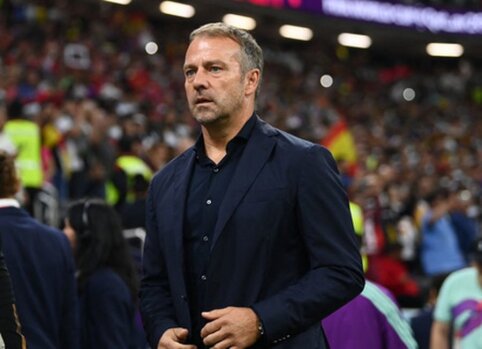
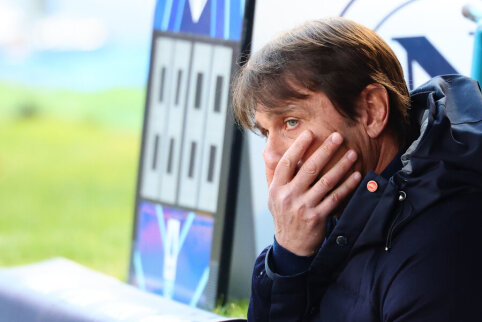
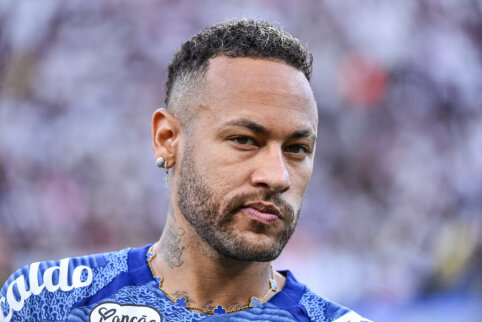
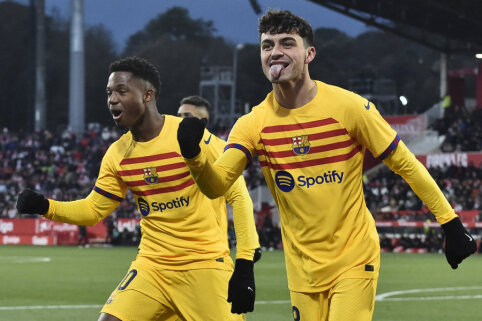
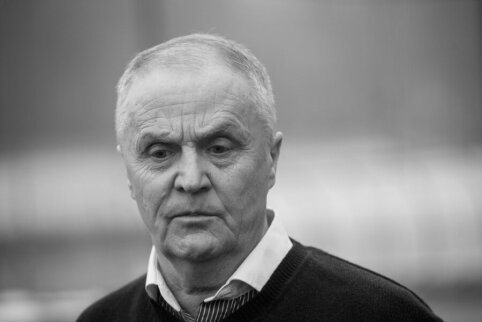
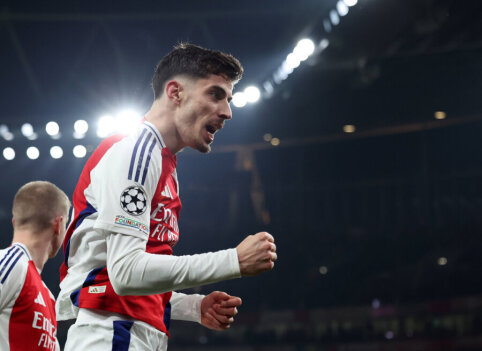
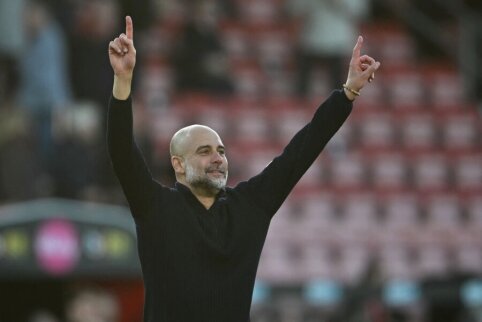
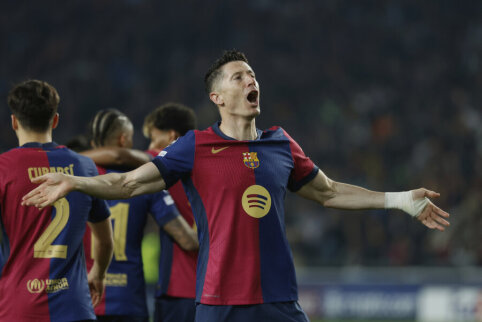
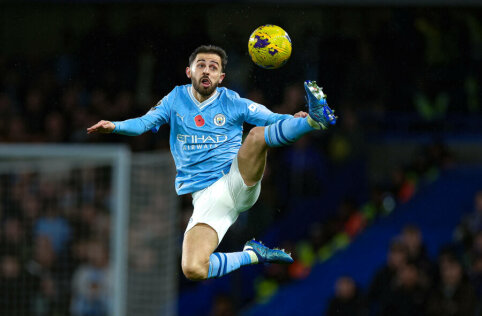
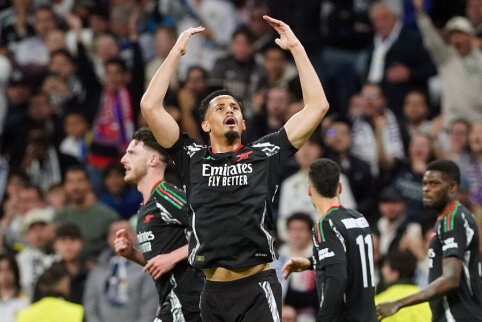
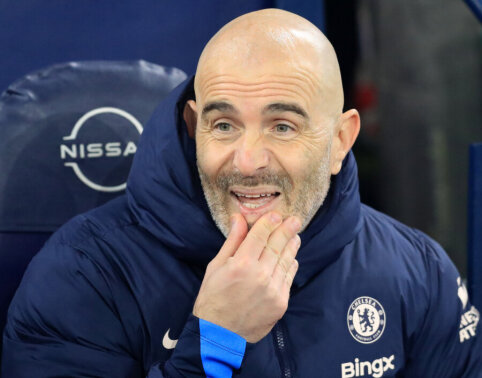
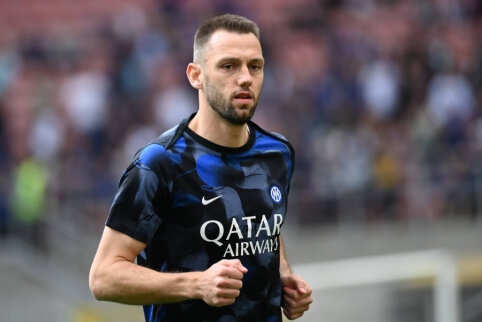
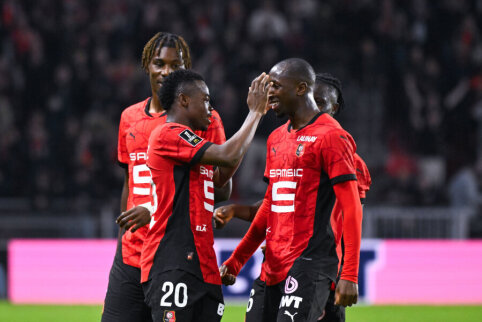
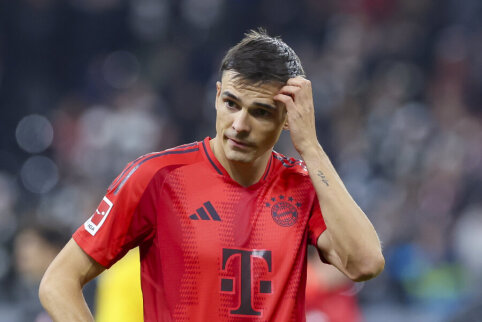
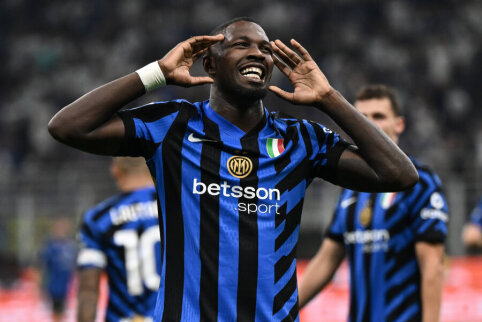
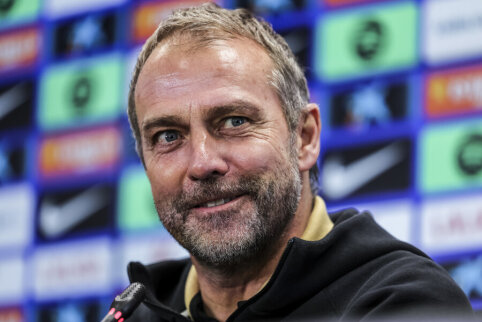
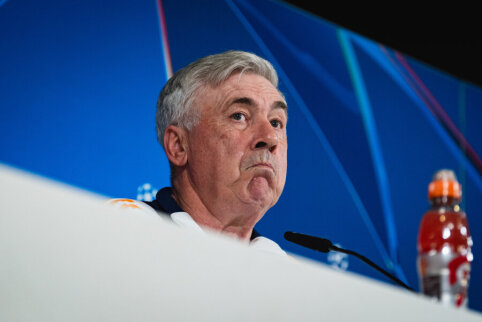
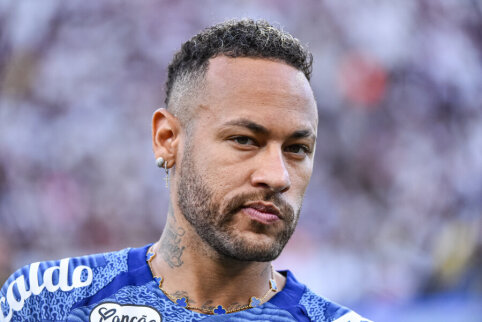
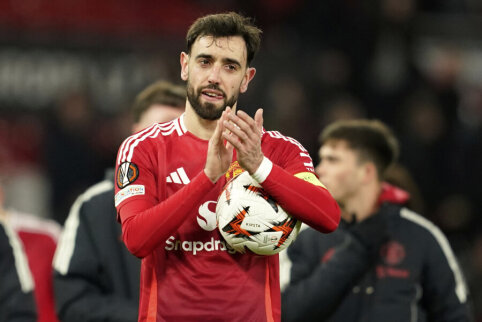
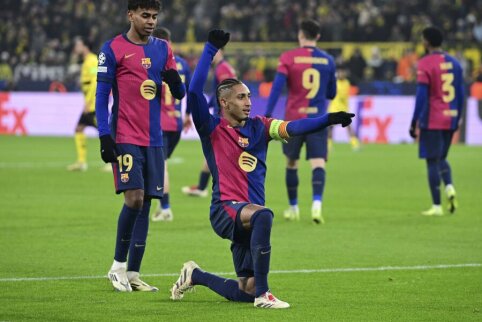
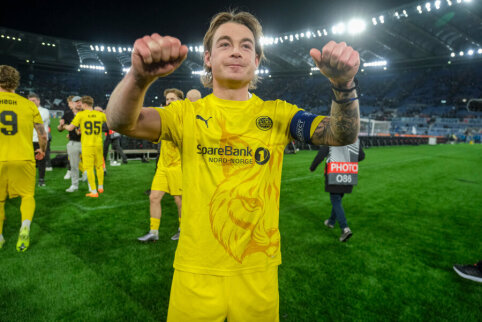
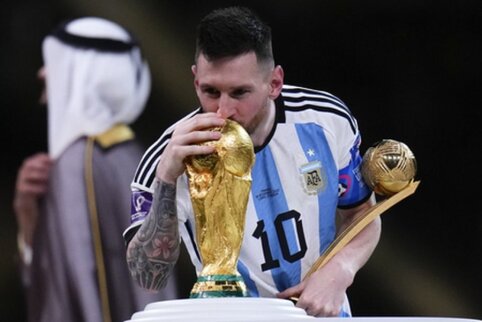
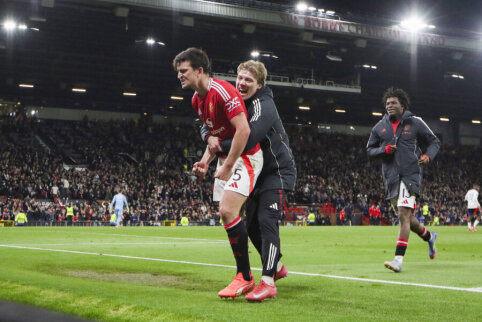
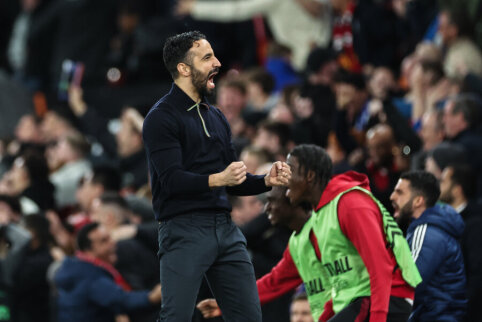
No comments yet...
No comments yet...
No comments yet...
Leave a comment
Cituoti komentarą
Report an inappropriate comment